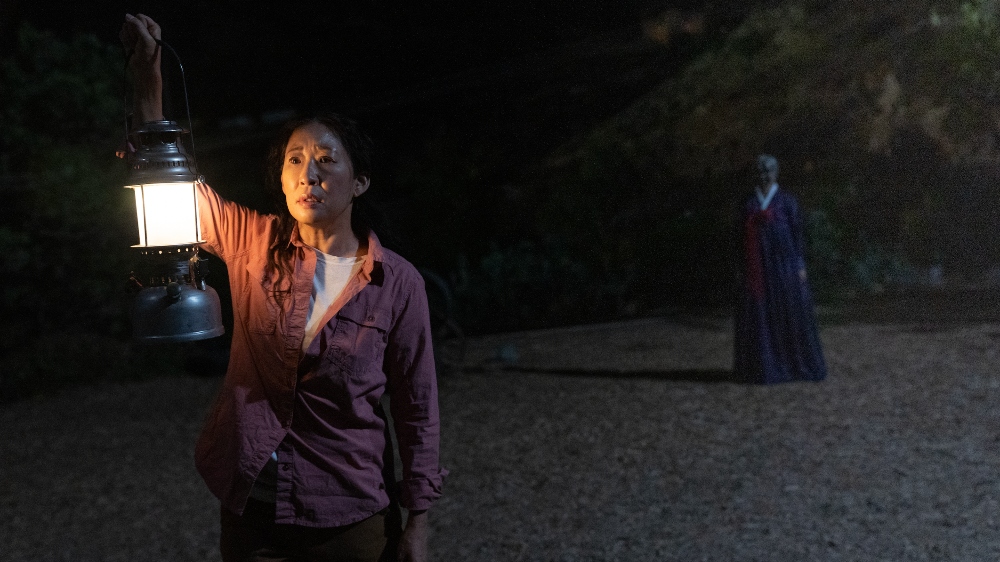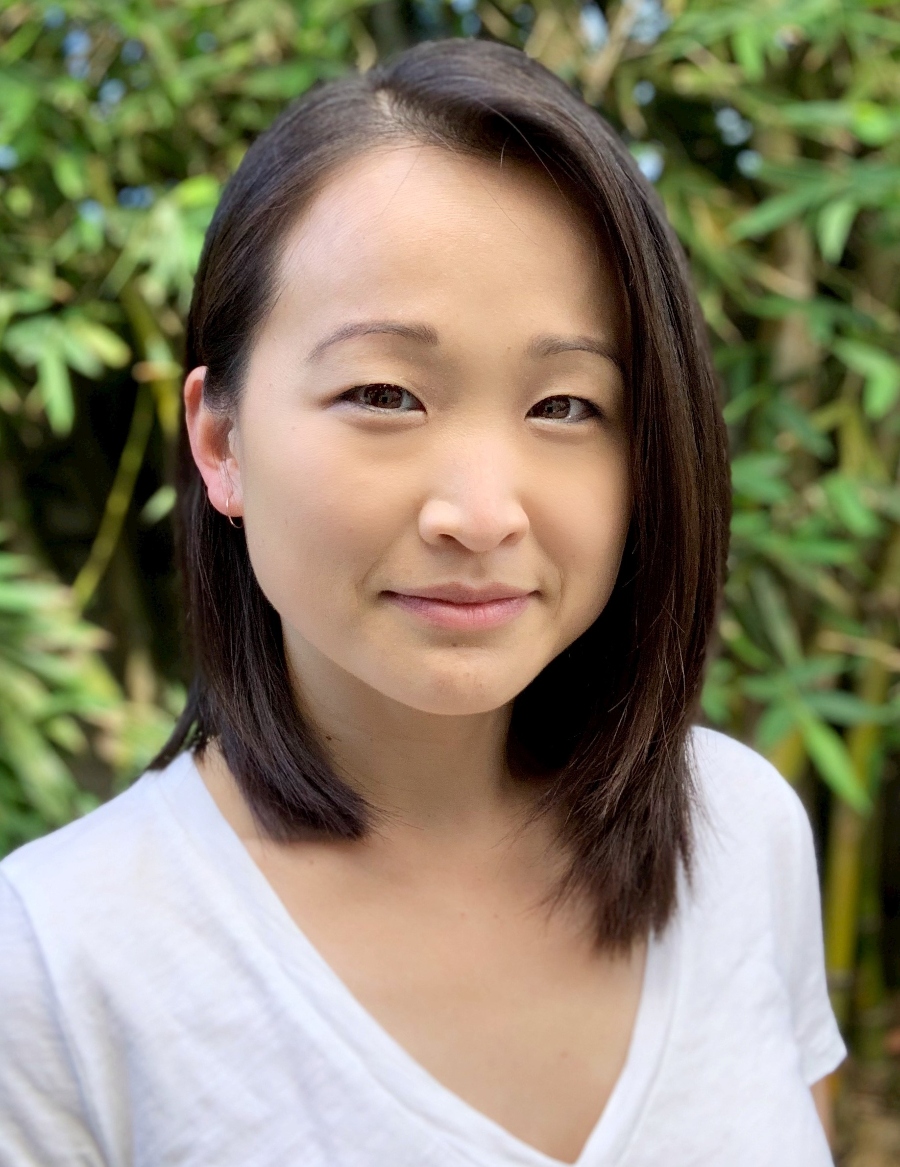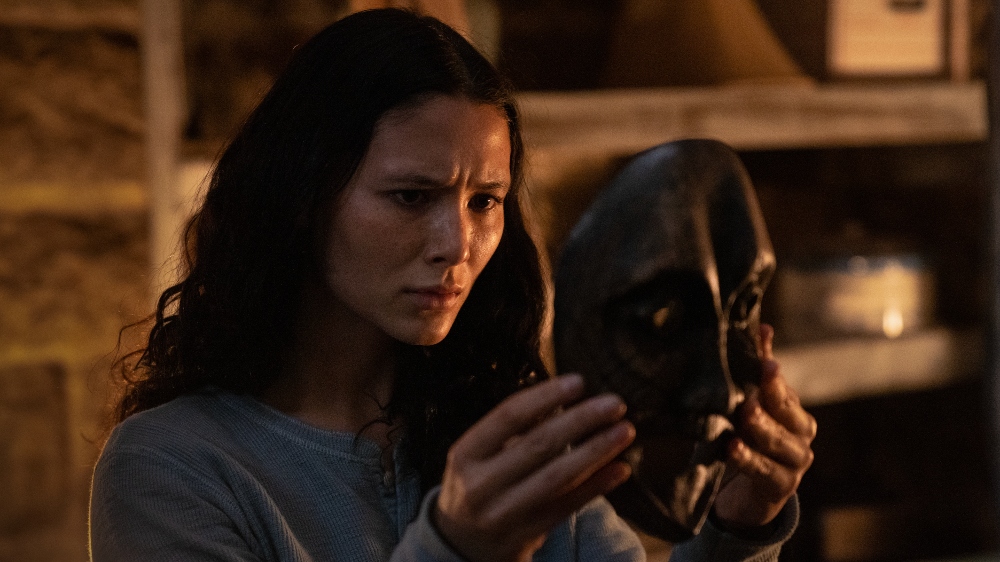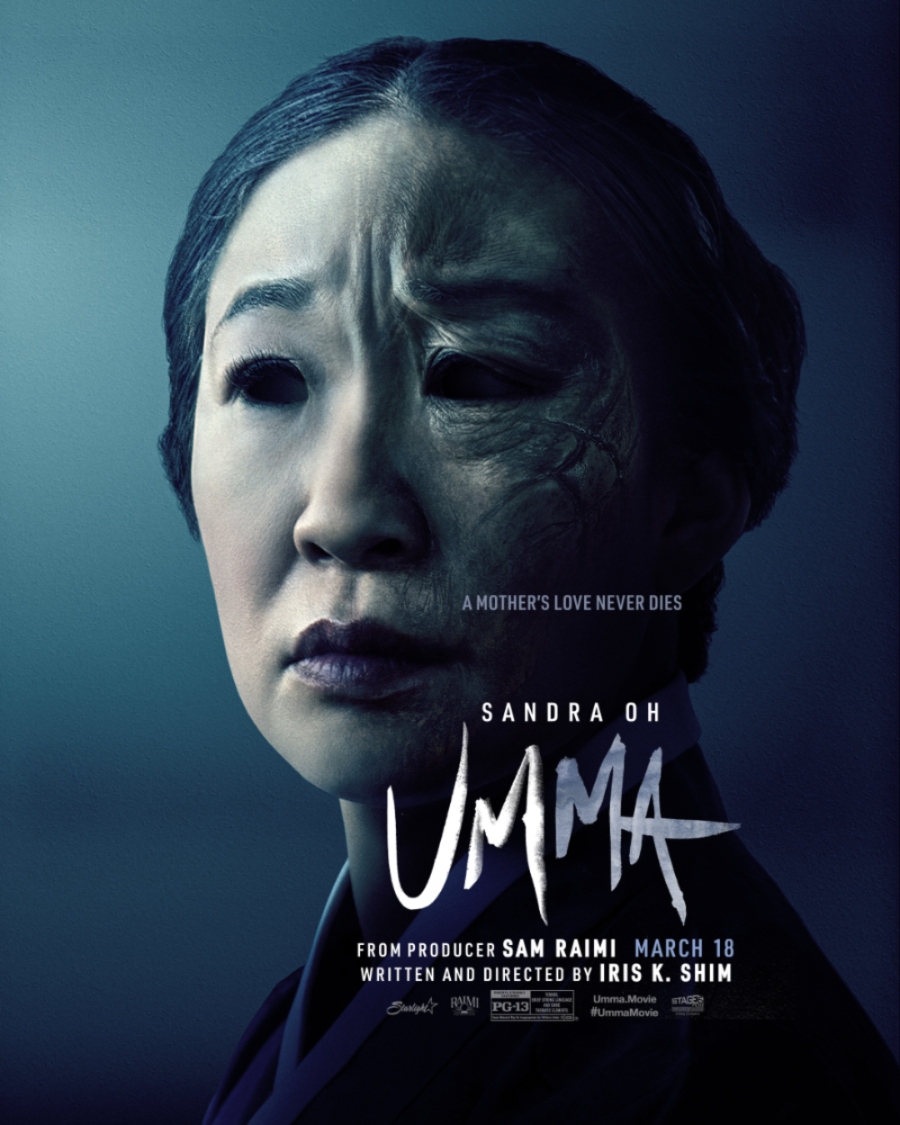
The Evil Dead director Sam Raimi returns to his genre roots with the release of Umma, which marks the feature directorial debut of up-and-coming filmmaker Iris K. Shim (The House of Suh).
The supernatural thriller stars two-time Golden Globe winner Sandra Oh (Killing Eve, Grey’s Anatomy) as Amanda, who is living a secluded life on a remote property where she and her daughter Chris (Fivel Stewart) work as beekeepers to produce honey. Amanda’s world is unexpectedly turned upside-down with the arrival of her uncle (Tom Yi), who has come to deliver memoirs and valuables from Amanda’s estranged mother in Korea. Amanda quickly finds herself reliving a traumatizing experience from her childhood that has left her haunted by the idea that she will one day turn into her mother — “umma” being the word for “mom” in Korean.
Below the Line spoke with Shim, who discussed her experience as the first Asian American woman to direct an American horror film and offered deep thoughts on how her cultural identity played a role in this film, as well as how she carries that strong sense of identity throughout her Hollywood travels. Shim also praised the technical components of lighting, camera, and sound, and how they’re combined to create a more realistic and horrifying experience. Enjoy…

Below the Line: You’re the first Asian American woman to direct an American horror film, so what has that experience been like for you?
Iris K. Shim: It’s a little surreal. In terms of making the film, I think a lot of Asian Americans have this experience where it’s not like we walk around every day saying ‘I’m Asian American.’ Everything I do is somehow woven [from] those experiences. There are moments where I’ve stepped back and felt very flattered and so grateful to be able to make this movie, but it’s also sad that it has taken so long. There is a little bit of a mixed bag of emotion when it comes to that.
BTL: Some Asian Americans struggle with issues of identity, so can you expound on coming to terms with your own identity?
Shim: When I was growing up, there were these moments where I wished I didn’t stick out, didn’t feel different, or [that] blended in more; I wasn’t that interested in learning more about my culture — sometimes just rejecting some of the values that my parents had tried to maintain in the house — [before] finally getting to a point in my adulthood [and] finding I was proud of who I was, proud of these traditions, and wanted to know more. I felt a little bit sad that it took me so long to get to that point that I wanted to embrace it. This script, and this movie, was very much an exercise in that — of being able to acknowledge who I was, and also reflecting the journey. When I see some of these Korean iconographies, some of it is unfamiliar to me. Part of it was because I didn’t really ask my parents what these things were. It was also an exercise for me to finally do that exploration and appreciation for [our] history.

BTL: What was your inspiration for the story of Umma, and how long have you been working on the project?
Shim: I wrote the script probably over the course of maybe two years or so. It did have its own series of evolutions. I set out to write a genre script that was very contained, a bit of a character piece in terms of a two-hander. When I finally decided to incorporate these Korean American characters and that experience into the story, it clicked into place in terms of being able to draw from my own experiences and questions about identity, my place in the world, and how much of myself [is one or the other]. ‘Am I Korean or am I American?’
I don’t think that there are ever any right answers to what that is, but it’s the exploration that I was really trying to incorporate into the story. Once I started diving into the mother-daughter relationships, that started to be very potent, because that is such a potent relationship that we all have with our mothers. And that, I feel, is the universal theme that we’re exploring — what our relationship to our mother is.
BTL: Most of the movie is about the relationships between Sandra Oh and her Umma, and Sandra Oh and her own daughter. Can you talk about the differences and similarities between the two?
Shim: What was so fun working with Sandra and with this character is that she is both the protagonist and the antagonist in the story. To be [able] to reflect the complicated nature of women and explore that was a really fun challenge in this story. Speaking of identity, for her to be both a mother and a daughter in the story and having to confront her identity as both of them was something that was really complex. That duality is something that I recently came across when I was looking at my mom — she has always taken care of my grandparents, both her parents and her in-laws, and I remember how much work she did taking care of them. Seeing her as a daughter figure, and seeing how much she cared [for them] was very moving to me. That dual identity was something that I wanted to explore.

BTL: What about the Korean influences in Umma? Can you talk about those cultural ideas surrounding death, such as honoring ancestors and the mythology of the nine-tailed fox?
Shim: The ceremony that the characters do to honor the dead, the Jesa, is something that my family does every new year. When I was younger, I didn’t really see the point in that and didn’t really understand what it was. I just remember being forced to wear a hanbok (traditional Korean clothing) and then bowing to this table with my grandparents’ pictures on it. I’ve really gotten appreciative of it, and I get very excited to do it because I started to understand that, for my parents, having lived away from their home country for so long and felt a bit disconnected from that, this ceremony wasn’t really for the ancestors, it was for them to feel connected and to be reminded where they come from. I really started to appreciate the beauty [of that] and wanted to incorporate that into the story.
Regarding the nine-tailed fox, that was something that I was not familiar with before I wrote the script. I was doing a little bit of research on various Korean folklore, and I came across this nine-tailed fox and thought that the image was so striking. When I asked my family members about this thing, they said it’s something we grew up with, but I just had no idea about it. I thought that was interesting — that even though my family is very Korean and I’m Korean, because I grew up here, there was something about my culture that I didn’t recognize [and] felt almost foreign to me. That’s the experience that I wanted the character to have in confronting these images that, even though her blood is Korean, she felt were unfamiliar.
BTL: This was your first time directing a feature, so how did you wrap your head around some of the technical components of the production, such as camera, lighting, editing, and sound?
Shim: For me personally, [I like] watching movies that feel very rooted in reality, [so] when the horror hits in those [quiet] moments, it just feels so much more frightening. I wanted to embrace a more naturalistic look throughout the movie, [so] ‘what does it look like when we live without electricity? How dark are the nights? How much [is] hiding in the shadows?’ Originally, we were prepping in Vancouver, but we ended up shooting the film in LA, so it was going to be a very different look. Once we made the pivot to shoot in LA, I thought, ‘this is an interesting contrast with the days being so bright, this overbearing sun, and then the nights being so dark.’ This playing with duality in the visuals as well was something that we were going for.
BTL: What was the most challenging aspect of making this film?
Shim: I think it was weaving in the story and character elements of it with the genre. I didn’t want to set out to make a movie that leaned into going for the thrills or going for the horror, just for the sake of it. But also, really being able to maintain empathy for these main characters, where we really want to root for them to win because so much of what they’re dealing with is so personal. It is so much about their relationships with people that they love, even when that love is very complicated. Being able to try to maintain the humanity of all these characters within a horror [movie framework] was a challenge.
Umma is now playing in theaters.





